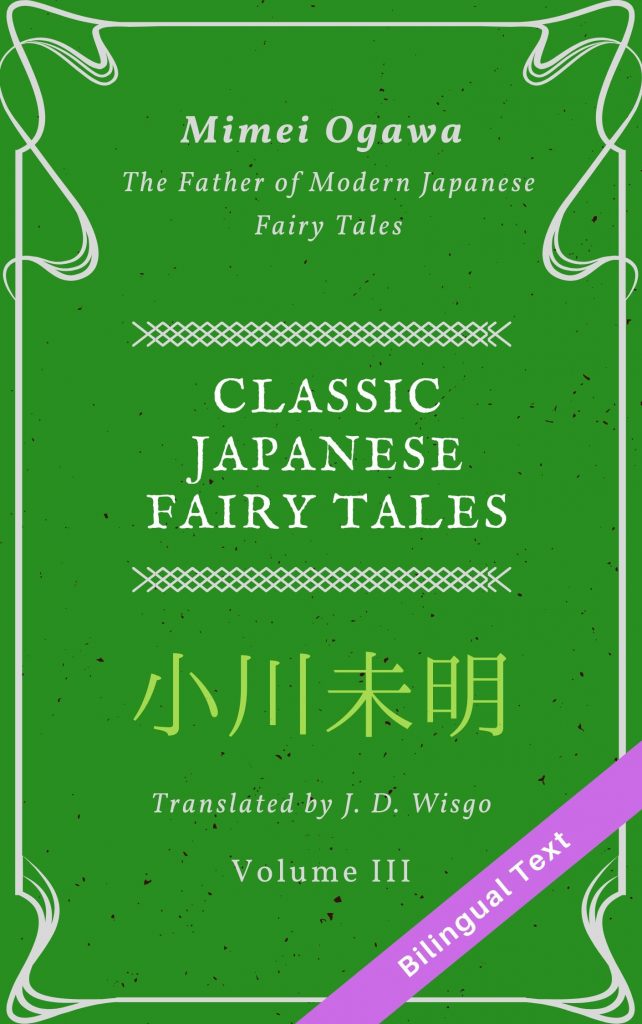(Quick link to the book’s Amazon page)
My last book project, a collection of stories by acclaimed woman author Hayashi Fumiko, was by far one of my most difficult projects so far, at least judging from the number of areas I had to spend extra time doing meaning verification, as well as the time required for the initial translation. So for my next project I knew I wanted to tone things down so I could continue translating, but with a little less challenging content.
I thought about starting a search for a new author to translate, but since that process typically takes weeks to months I decided to first consider my options for using the works of an author whom I’m already translated in some form.
It didn’t take me long to settle on translating a new set of stories by author Mimei Ogawa (小川未明), known as the father of modern Japanese fairy tales. Not only have I already produced two books containing translations of his works, but the stories themselves are relatively easy to understand––not to mention that these two books are have sold significantly better than my other books. (Despite the lower difficulty level, there was still a few places I double-checked the meaning with the help of my colleague Mizuhiro san.)
Just like the first two books in this series, Volume 3 includes parallel English/Japanese versions of the stories to allow easy comparison for those studying Japanese or looking to learn more about translation. I included a brief section in the beginning about how to use the book for learning purposes (similar to the one in Volume 2), and also have added a section with a handful of translation notes at the end. While I’ve generally avoided translation notes for most of my books (partially due to issues I’ve had formatting them), I felt there were a few key pieces of information, such as translation decisions I made, that should be available to curious readers.
To give you an idea of what Mimei Ogawa’s stories are like, he has been called “The Hans Christian Andersen of Japan”, after the famous author who has penned many well-known fairy tales such as “The Emperor’s New Clothes” and “The Ugly Duckling”. Like Andersen, Ogawa uses simple stories to make often profound statements, though sometimes the takeaway lesson is not always straightforward.
Anyway, if you are interested please check out the book’s page on Amazon here where it is available on a release sale for only $0.99.
You can get a free sample of the E-book on Amazon, but I’ve translated another of Ogawa’s stories some time back and posted it on this blog to give you an idea of what his stories are like. You can find the English-only version of it here.
(Note: you can see a page with all three books of the series here)
